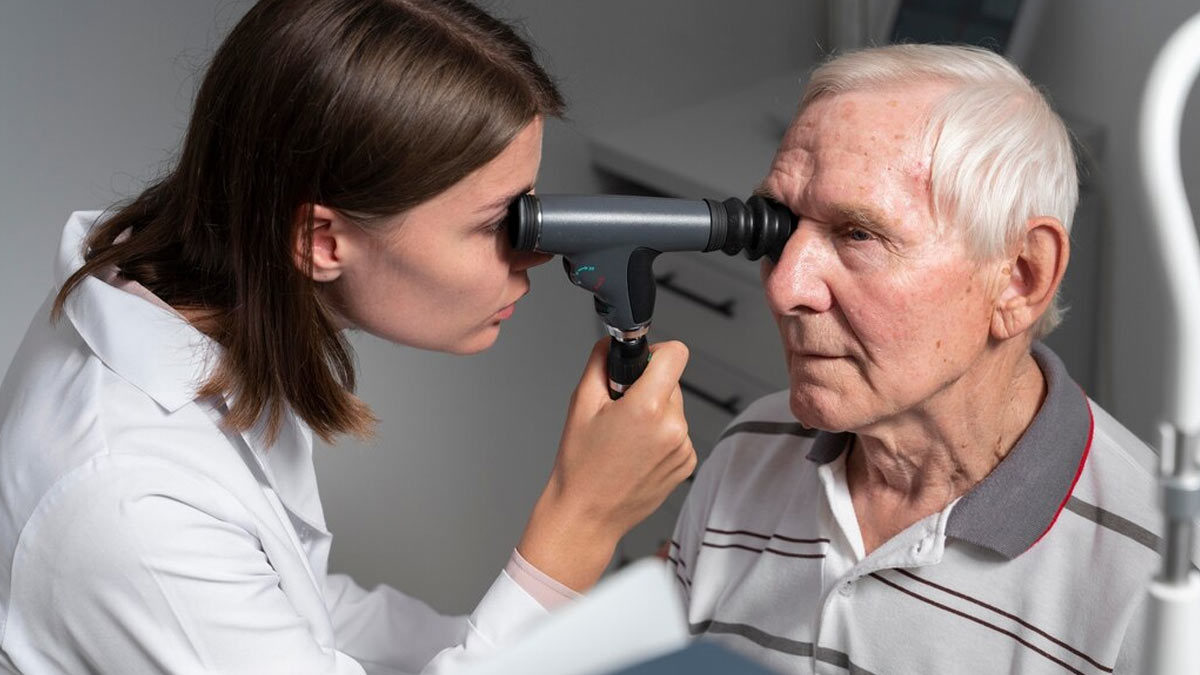
Diabetes and cataracts are two common health issues that frequently coexist, providing special difficulties for those who have the disease. The eyes are one of the many organs that can be severely impacted by diabetes, a metabolic disease marked by elevated blood sugar levels. Cataract development is one of the most common eye complications among diabetic patients. In this article, Dr Brahmi Pandey, Cataract Specialist, Ophthalmologist and Medical Director, Balaji ENT and Eye Hospital shares the link between diabetes and cataracts.
Table of Content:-
“In diabetic patients, cataracts develop due to the accumulation of excess sugar in the eye's lens, causing protein denaturation and cloudiness,” explains Dr Pandey.
Diabetic individuals are more prone to developing cataracts at an earlier age compared to non-diabetics. Studies indicate that the risk of cataracts is two to five times higher in individuals with diabetes.
There are different types of cataracts, including subcapsular, nuclear, and cortical cataracts. Diabetic patients may be at an increased risk of specific types, such as subcapsular cataracts.
Effects Of Diabetes On Eye Health
High blood sugar can affect your eyes in numerous ways. Here are some potential issues shared by Dr Pandey.
Diabetic Retinopathy
Apart from cataracts, diabetic retinopathy is another common diabetic eye complication. It involves damage to the blood vessels in the retina, leading to vision impairment or blindness if left untreated.
Also Read: Can Diabetic Retinopathy Be Reversed
Increased Risk of Glaucoma
Diabetic patients are also at an elevated risk of developing glaucoma, a condition characterised by increased pressure within the eye, potentially causing optic nerve damage.

Managing Cataracts In Diabetic Patients
Regular Eye Examinations
According to Dr Pandey, “Routine eye checkups is the first step for cataracts management. Diabetic individuals should undergo comprehensive eye exams at least once a year, including tests for intraocular pressure and a thorough examination of the retina.”
Blood Sugar Control
Maintaining optimal blood sugar levels is paramount in preventing and managing cataracts in diabetic patients. Consistent blood sugar control can slow the progression of cataracts and reduce the risk of other diabetic eye complications.
Also Read: Do You Know Your Diabetes Type? Diabetologist Shares A Detailed Guide
Healthy Lifestyle Choices
Adopting a healthy lifestyle, including a balanced diet rich in antioxidants, regular exercise, and avoidance of smoking, can contribute to overall eye health. Foods high in vitamins C and E, zinc, and omega-3 fatty acids may be particularly beneficial.
Surgical Intervention
“In advanced cases of cataract, surgical removal might be the last option. Phacoemulsification, a modern cataract surgery technique, is often used, offering quicker recovery times and improved outcomes. Diabetic patients should discuss the potential risks and benefits with their healthcare team,” shares Dr Pandey.
Collaborative Care
Effective management requires a collaborative approach involving endocrinologists, ophthalmologists, and other healthcare professionals. Integrated care can address both diabetes and its ocular complications comprehensively. Regular communication between healthcare providers ensures a holistic and tailored approach to each patient.
Also Read: 5 Essentials To Build Your Diabetes Management Toolkit
Conclusion
It is not merely about preserving vision; it's about safeguarding the essence of living—a life unhindered by the shadows of diabetic complications. There can be no conclusion to this but a beginning, where patients and healthcare providers should walk on a shared journey towards sustained well-being and clarity in sight, mind, and body.
People with diabetes can lessen their risk and experience cataracts by getting regular screenings, maintaining ideal blood sugar control, and making a commitment to a healthy lifestyle. Maintaining not only vision but overall well-being in diabetic patients requires a comprehensive approach that includes medical interventions, lifestyle modifications, and collaborative care. Finding your way in the complex terrain of cataracts and diabetes management requires regular communication and collaboration between patients and healthcare providers.
Also watch this video
How we keep this article up to date:
We work with experts and keep a close eye on the latest in health and wellness. Whenever there is a new research or helpful information, we update our articles with accurate and useful advice.
Current Version